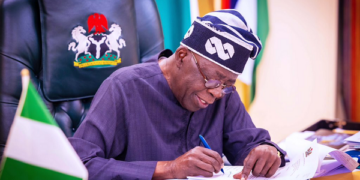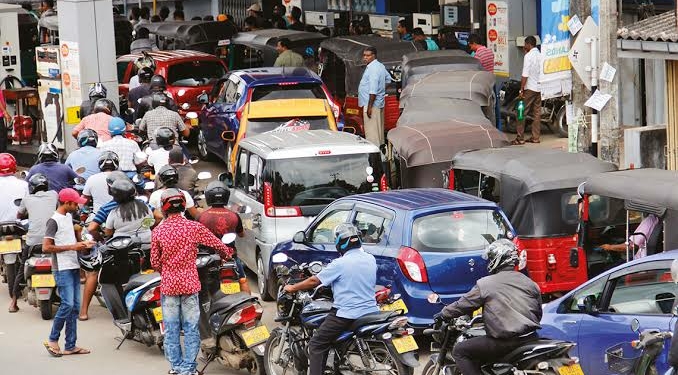- NNPC said the difficulty financial situation it finds itself is hampering its ability to meet its fuel supply obligations
The Nigerian National Petroleum Company Limited has said its ability to meet the daily fuel demand and consumption in the country is severely threatened.
The company attributed the troubling development to the massive debt it owed petrol suppliers, saying the difficulty financial situation it finds itself is hampering its ability to meet its fuel supply obligations.
Reports had previously emerged that a $6 billion debt the NNPCL owes petrol suppliers has aggravated petrol scarcity in Nigeria, a perennial feature since the beginning of 2024.
The NNPCL on different occasions had blamed logistics challenges, and flooding, amongst others factors for the supply shortages of the essential commodity.
However, in a statement on Sunday, NNPCL spokesman Olufemi Soneye finally admitted the company’s “significant debt to petrol suppliers”
He said: “this financial strain has placed considerable pressure on the company and poses a threat to the sustainability of fuel supply”.
“In line with the Petroleum Industry Act (PIA), NNPC Ltd remains dedicated to its role as the supplier of last resort, ensuring national energy security.
“We are actively collaborating with relevant government agencies and other stakeholders to maintain a consistent supply of petroleum products nationwide.”
Nigeria, Africa’s most populous nation, faces energy challenges, with all its state-owned refineries moribond. The country is heavily dependent on imported refined petroleum products, with the state-run NNPC being the major importer of the essential commodities.
Fuel queues are commonplace in the country. Prices of petrol tripled since the removal of subsidy in May 2023, from around ₦200/litre to about ₦800/litre, compounding the woes of the citizens who power their vehicles, and generating sets with petrol, no thanks to decades-long epileptic electricity supply.
The government simultaneously unified forex windows, with the value of the naira nosediving terribly from $1/₦700 to over $1/₦1600 at the parallel market. Prices of food and basic commodities immediately climbed through the roof as Nigerians battled attendant inflation.
Recently, the Independent Petroleum Marketers Association of Nigeria (IPMAN) said the landing cost per litre of petrol has made it impossible for petrol marketers to import the essential commodity just as being done by the NNPCL.
“Right now, the landing cost of PMS is over ₦1,200, without the margin of the marketers, transportation and other logistics,” said IPMAN National Operations Controller, Zarama Mustapha.
“NNPC sells to marketers at ₦565 or so. That means there is a subsidy of almost ₦600 to ₦700 as of now.
“Whether they (government officials) say there is subsidy or there is not subsidy, the fact on the ground clearly states that there is something they are under-recovering.”










Discussion about this post